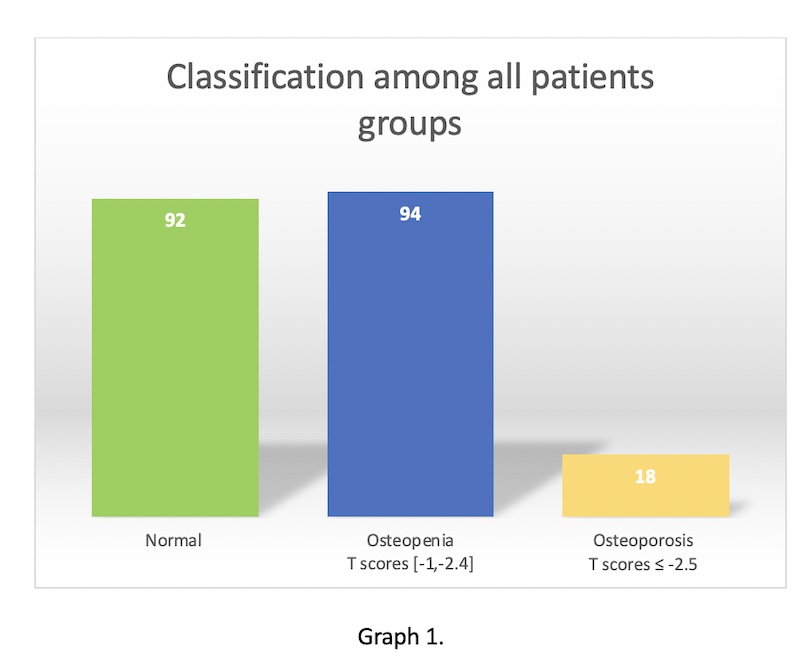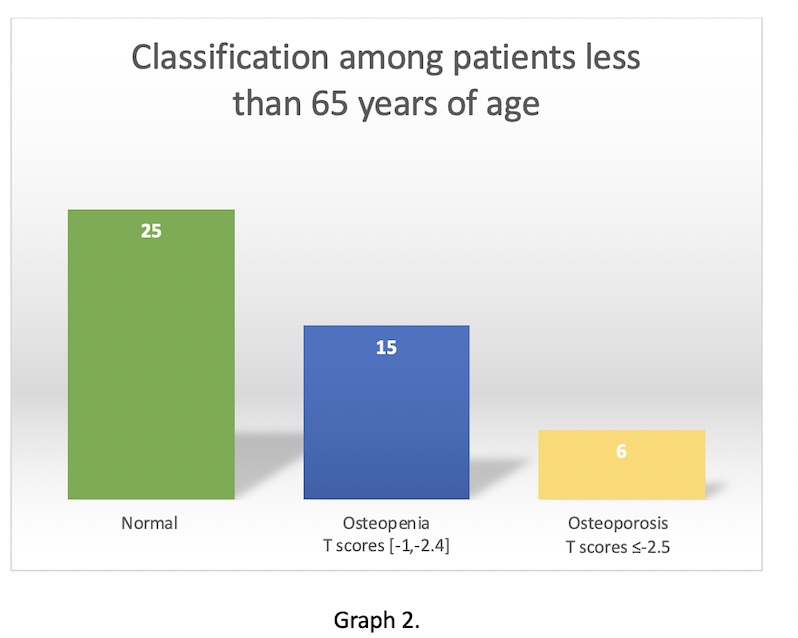Session Information
Session Type: Poster Session B
Session Time: 10:30AM-12:30PM
Background/Purpose: Total joint arthroplasty ( TJA) is one of the most common orthopedic procedures. There are over one million TJA annually in the United States. Osteoporosis is one of the main risk factors for aseptic loosening and increased subsidence after cementless total hip arthroplasty ( THA). Unfortunately, there are no current guidelines available regarding preoperative osteoporosis screening which leads to current underrecognized and undertreated osteoporosis for this particular patient population. In addition, it is more challenging to screen for osteoporosis given the limitation in resources due to rural geographic location among West Virginians.This project aims to increase preoperative osteoporosis screening for orthopedic patients located in Morgantown, West Virginia, U.S.A.
Methods: This retrospective study was carried out from 01/01/2024 to 05/31/2024 based on chart review. Inclusion criteria are those greater than or equal to 65 years of age or between 50 and 64 years of age with one of the risk factors for developing osteoporosis. DEXA scans are ordered during preoperative visits if no prior DEXA scans are done. T-scores are retrieved from DEXA reports either internally or externally. According to American College of Rheumatology guidelines, patients are classified as having osteopenia if their T scores are between -1 and -2.4. Whereas those have T scores of equal to or lower than -2.5, are classified as having osteoporosis.
Results: Over a period of 5 months, we are able to identify 207 patients that qualified for osteoporosis screening. However, only 204 patients have completed DEXA scans at the end of May 2024 due to pending insurance approval or pending scanning appointments. In our study, DEXA scan has a sensitivity of 0.55 ( p < 0.05). Among 46 patients aged between 50 and 64 years, 21 of them ( 45.7%) have either osteoporosis or osteopenia. This unique patient population would have been missed with general osteoporosis screening guidelines only target those patients over the age of 65 years.
Conclusion: Our study highlights the importance of bone health optimization including preoperative osteoporosis screening for orthopedic patients prior to their scheduled procedures. We also believe that once identified as either osteoporosis or osteopenia, prompt treatment would play a critical role in improving the final outcome. We also offer treatments for those that are diagnosed with osteoporosis or osteopenia with high FRAX (fracture risk assessment tool) scores.
To cite this abstract in AMA style:
Tran K, Watkins C, Pincavitch J, Guido J, Glover T, Baker A, Thompson J. Improving Preoperative Osteoporosis Screening for Orthopedic Patients [abstract]. Arthritis Rheumatol. 2024; 76 (suppl 9). https://acrabstracts.org/abstract/improving-preoperative-osteoporosis-screening-for-orthopedic-patients/. Accessed .« Back to ACR Convergence 2024
ACR Meeting Abstracts - https://acrabstracts.org/abstract/improving-preoperative-osteoporosis-screening-for-orthopedic-patients/


